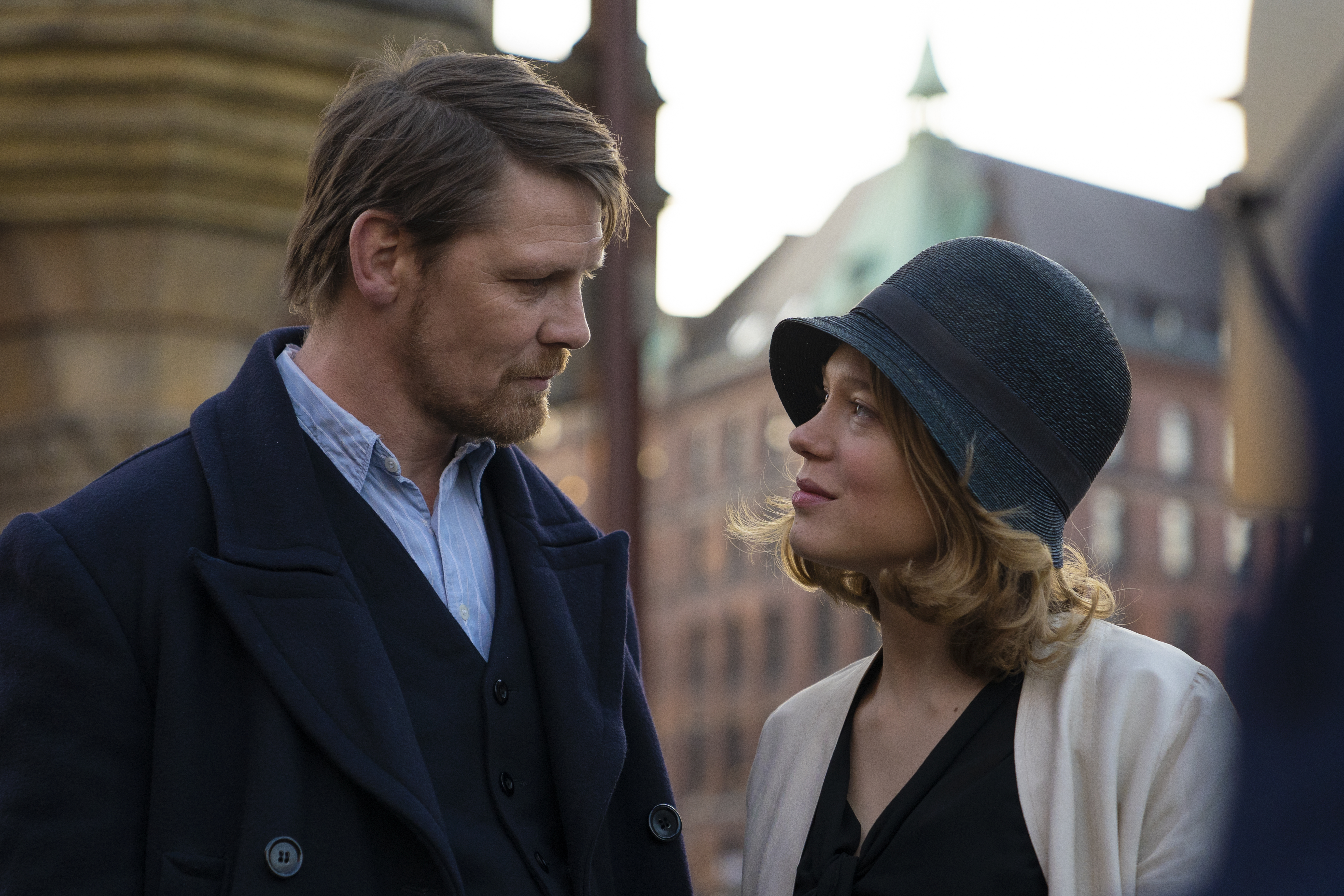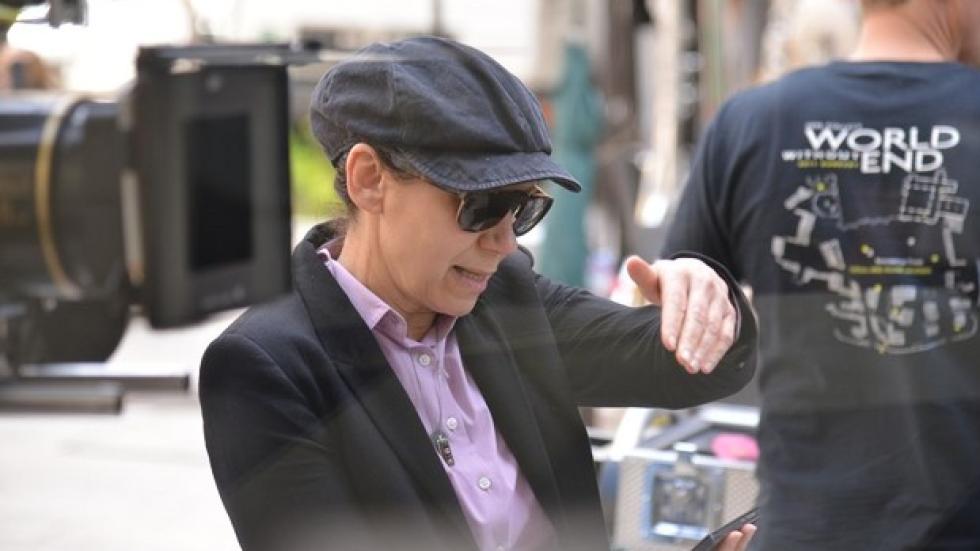In its 2017 edition, the Berlin Film Festival awarded its Golden Bear to In Body and Soul, the film with which the Hungarian filmmaker Ildikó Enyedi (Budapest, 1955) returned to cinema, 18 years after her previous feature film, Simon, the Magician (1999). Almost two decades in which she was barely able to express herself with her camera, working for the HBO network and signing a couple of short films. Almost two decades in which professional blues was only compensated by her dedication to her mother and family.
Before that, Ildikó Enyedi began to forge her own vision in the late 70s and during the 80s, from the underground art collective Indigo, cultivating conceptual art and performance. Later, she worked at the Béla Balázs Studio, the only independent film studio in Eastern Europe prior to the fall of the Wall. It was during this period that she turned to more experimental work, somewhere between documentary and fiction, which led to her first feature film Mole (1987). Her second feature, My 20th Century (1989), won the Camera d'Or at the Cannes Film Festival. This was followed by Magic Hunter (1994) and Tamás and Juli (1997).
A professor at the Budapest Faculty of Theatre and Film since the late 1980s, she is now presenting her new feature film, The Story of My Wife, starring Léa Seydoux, Louis Garrel and Gijs Naber, at the Seville Festival. A period film about the possible infidelity of the wife of a tormented and lonely sea captain. We get to know Ildikó Enyedi and his creative imagination a little better, based on statements made in various interviews.
The purpose of cinema today
"The function of the movie theatre is changing, though I think that as it becomes increasingly rare to go to the cinema and audiovisual consumption is at home or on your phone is becoming more and more common, the magic of a cinema is becoming stronger. In a way, we are going back to the roots, to the early stages of that wonderful pleasure of being in a dark place with strangers, sharing something with them. I think it is a very important part of our lives to experience the luxury of connecting in a room, through a film, both with people who live far away from us and with those who no longer live. This for me is a magical place of connection, a place to become one with humanity.
A look back at her career
"I can't really say I have a career with a clear line. I think there is a part that is broken, or damaged, because for many years I didn't do what I liked. Also, every film of mine came out of the basic need to share something. That's why I don't think I've built a typical film career. I deprived myself for many years when I could have done something satisfying for myself, and perhaps meaningful for others. However, sometimes being aware of that and knowing how to position yourself in the film industry, can make you forget about your freedom. I teach directing at the University of Budapest and I try to show young filmmakers that maintaining that freedom is necessary.
Film as a means of creative expression
"In fact, I chose to go into filmmaking quite late in life. Actually, after I shot my first feature film, My Twentieth Century. I was very reluctant to choose any profession. I worked on the borders between culture and mainstream cinema because it's very expensive, so in a way it was forbidden territory. But I enjoyed the complexity of working on my first feature film so much that I couldn't hesitate any longer".
The influence of conceptual art
"Perhaps, in a way, my past as a conceptual artist has influenced my films because I'm not afraid of simplicity. I learned that, in its correct form, simplicity is very powerful. You just have to choose the right material or the right spirit. That's how things work best. Maybe that's why I'm not afraid to work with amateur actors either, even if that requires a different approach, because they're not on the same page as professional performers."
18 years without filming
"I had some very, very bitter years, but I never stopped wanting to make films. When this bad period started, I had two completed scripts and a half finished script, with very good responses from production companies. So there was no reason to abandon them. And I worked and worked, and it just didn't happen. I worked day and night and weekends to make them happen. I felt like I was always in a hurry. I felt that if I couldn't do them then, I would never do them. There was too much at stake. I lived with tension. I suffered a lot. When I finally let them go, then the world came to me, surprisingly quickly. I wanted to control everything and I lost several years to that. But there was a beautiful counterpart to that time: I was able to be with my children, and they taught me to play again, to relax and to be completely open to whatever was to come. It was a special privilege to be able to play, and that was something I had forgotten.
Working for HBO
"I directed the Hungarian remake of Terápia in 2011. I loved the format; it's elegant, it's bold, you can go deep with the actors. I never imagined I would work for HBO. I never expected to have so much creative freedom working for a company. The cast and crew were of such a high quality as never existed in Hungary before HBO. The whole team was a film crew and worked with so much dedication and passion... The experience really healed me as I was getting so desperate which, of course, is fatal to creativity."
The secrets of writing
"Sometimes, after writing, you question your choices, you question whether your choices were right, whether there were better choices thematically. You try to understand why you wrote certain things. I hardly changed the script, which is also unusual because I used to rewrite many times. Without regrets, I just throw things away. Sometimes, as happened to me with In Body and Soul, you don't build the characters, they just appear in front of you. It's always a mystery.
Directing as a woman
"When I was in film school, I was the only girl in the class and the three previous classes had no female students. It was openly said that we girls were a bad influence on the boys, disturbing them while they were concentrating on their work. My classmates were kind to me and treated me with respect. I never overheard any offensive or hurtful comments, and I don't suppose there were any behind my back either. I was the oddball, with the freedom of an oddball. It wasn't so bad. A few years ago I started teaching at the University of Film and Theatre Arts in Budapest, at my old school. The furniture, even the rickety lift, was the same, but there were many more girls in the building".
A piece of advice for future female filmmakers
"To those who are preparing for their first film, I would say that there are many challenges in filmmaking besides being a woman, which in itself is a challenge. There are many bitter, humiliating and derogatory moments before your project is financed. But, as soon as you are with your team, believe me, they are not stupid: they want a real leader, whatever their gender. They want to know, first and foremost, if it's worth the hard work they'll put into your project. They want to know if you know what you want and if you are honest enough to tell them when you need time to figure it out. They will test you and if you pass they will work for you like crazy, with touching fidelity."

Still from The Story of My Wife by Ildikó Enyedi
The Story of My Wife
"Milan Füst's The Reminiscences of Captain Storr is a well-known book in Hungary. It was translated into many languages, but somehow it is not a hit, an easy read. And it has been rather misunderstood. It is praised, in my opinion, for the wrong things. It is true that it is very well written, and that the plot is very colourful, lush, rich and meandering, it has something of One Thousand and One Nights about it, and it is also a gripping love story. But Füst was Jewish and wrote the book during World War II in Budapest when his own life was in danger. The essence of the book, for this guy, sitting in Budapest when the bombs are falling outside while he's working on this, is not the love story. It's about this search for how to live our life, our tiny, fragile life. And it says, in over 400 pages, that trying to be in control is the wrong approach. That you have to accept and appreciate that you can't control life."
Léa Seydoux
"In fact, at the beginning I wasn't sure about her. Because she's like a rubber ball, very energetic, very alive. But my French producer asked me to meet her. We met in a café and I arrived earlier and I saw her walking towards the café before she saw me. She was all alone. And I saw in her a very attractive vulnerability, something I had never seen from her in any of her characters. From the moment she walked into the café, my heart opened up to her."
My Wife's Story' and the paradigm shift
"I think we have, not just men, really toxic patterns. We are on the way to changing them, not only in the way we communicate between men and women, but also in the way we relate to the world. What is somehow also present in this film is this wonderful shift with the #MeToo movement, this rewriting of the code of how we behave with each other, and how it overlaps with another current that is absolutely devoid of empathy or even interest in the point of view of the other human being or the other political party or another nation or another group. The conversation, the debate, has stopped. It is all instinct-based shouting. I'm not just talking about relations between men and women. It's Trump, it's Orban, it's how they are based on some confused emotions, and not logic. This wonderful #MeToo movement and this general toxic conversation overlap, then also the culture is cancelled and the incel movement appears. The very beauty of the moment itself is distorted because it came at a very unfortunate time."
* Statements gathered from interviews in Film Comment, NFI (National Film Institute Hungary), Pop Matters, Screen Daily, Ungrandmoment.be, SydneyBuzz The Blog, Womenandhollywood.com, The Hollywood Reporter and Deutschlandfunk Kultur.







